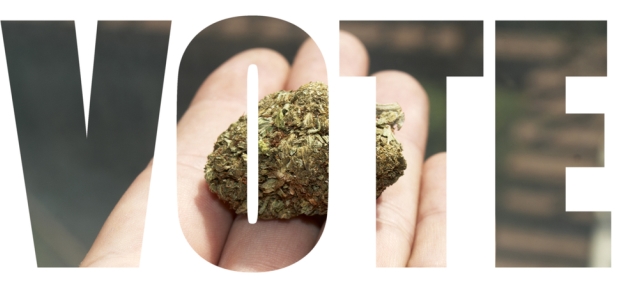
Nine States Deciding on Marijuana Measures Today
The drug testing industry and employers in the states are watching closely. Voters in five states are considering whether to legalize recreational marijuana, and those in four other states are weighing medical marijuana legalization.
Though they are overshadowed by the presidential contest mainly pitting Republican Donald Trump against Democrat Hillary Clinton, Nov. 8 ballot measures in nine states are attempts to continue the recent trend of broadly legalizing the use of marijuana. The drug testing industry and employers in those states are watching closely, however, as voters in five states consider legalizing recreational marijuana and those in four other states are weighing medical marijuana legalization.
The vote with the highest profile is in California, with Proposition 64, the Adult Use of Marijuana Act (AUMA), proposing to legalize the possession of 1 ounce of marijuana flower or up to 8 grams of cannabis concentrates for those 21 and older, growing up to 6 plants, and creating a regulated recreational marijuana industry. Polls indicate this proposition will pass.
The other states with legalization of recreational marijuana on the ballot are Arizona, Nevada, Maine, and Massachusetts. Nevada voters passed medical marijuana in 2000; its initiative would legalize possession of 1 ounce of marijuana by those 21 and older and create a regulated recreational cannabis industry with tax revenue supporting K-12 education. Maine's would legalize possession of up to 2.5 ounces of marijuana, while Arizona's Legalization and Regulation of Marijuana Act (Proposition 205) would legalize possession of up to 1 ounce of marijuana and would set up a new agency, the Department of Marijuana Licenses and Control, to oversee the industry.
In Massachusetts, Question 4 is an initiative to regulate and tax marijuana for recreational use for adults 21 years and up, and polls suggest this one also will pass on Nov. 8. It would legalize possession up to 1 ounce of marijuana outside an individual’s residence, possession of up to 10 ounces of marijuana in an enclosed, locked space within the residence, and growing up to 6 marijuana plants in an enclosed, locked space within a residence and possession of the marijuana produced by those plants in the location where it was grown. This measure would create a new Cannabis Control Commission to oversee regulation of marijuana in the state.
Florida, North Dakota, Montana, and Arkansas have medical marijuana on their Nov. 8 ballots. Florida voters are being asked to approve medical marijuana for the second election cycle in a row after voters narrowly defeated a measure in 2014. This year, Amendment 2 would legalize medical use of marijuana for individuals with debilitating medical conditions as determined by a licensed Florida physician, with the Department of Health registering and regulating centers that produce and distribute marijuana for medical purposes.
Arkansas had two competing proposals on its ballot: the Arkansas Medical Cannabis Act (Issue 7) and the Arkansas Medical Marijuana Amendment (Issue 6). But the Arkansas Supreme Court disqualified Issue 7, and votes for it will not be counted. Issue 6 would make a repeal of the law impossible because it is a state constitution amendment; it proposes to legalize doctor-approved medical marijuana treatments for patients. Issue 7 would allow doctor-approved medical marijuana treatment through nonprofit compassion centers and would permit patients to grow their own marijuana at home if they live too far away from a center.